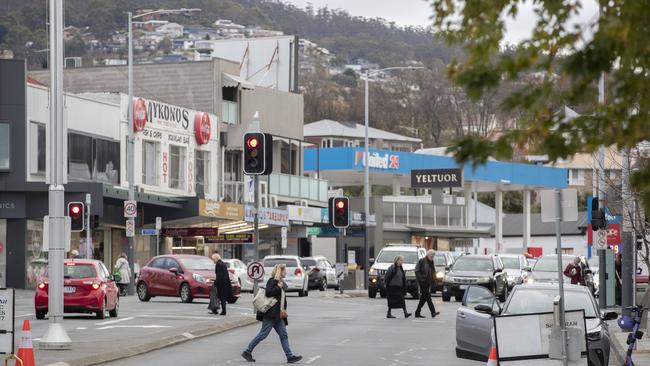Personal insolvencies set to soar as renters buckle under debt: AFSA
Thousands of Australians face personal insolvencies this financial year as households dig into their savings to pay debts, a government authority says.

The Australian Financial Security Authority has warned that personal insolvencies will surge this financial year as households dig into their savings to pay debts amid an expected increase in the unemployment rate as the economy grinds to a halt.
Renters with unsecured debt, who have been slugged with above-inflation price hikes in the past few years amid supply constraints and surging population, make up more than nine in 10 personal insolvencies in Australia, despite making up just 21 per cent of the population.
AFSA chief executive Tim Beresford has told The Australian that the government agency was bracing for 14,850 personal insolvencies this year, a 25 per cent increase on the 11,600 seen last year. He will tell the Financial Counsellors Australia (NSW) Annual Conference on Wednesday that escalating economic stress is taking its toll.
“Households are starting to dig into their savings. There’s still a reasonable savings bundle, but at a micro level, particularly with those who have less savings and at the more vulnerable end of society, they have no more savings and are hanging on by a thread,” he said. “What’s keeping them afloat is employment. If we were to see unemployment go from a 4 to a 5 (per cent), you would start to see that number rise even faster than 14,800. It would go much higher than that.”
The surge, however, comes off a low base, with personal insolvencies declining to just under 10,000 annually during the pandemic, well below the 10-year average of 23,000. However, as pandemic relief measures faded and savings dwindled, insolvency rates have begun a steady climb.
A quarter of all personal insolvencies were a direct result of a business becoming insolvent, as the Australian Taxation Office looks to claw back $50bn in unpaid tax. This has seen an increase in small business restructuring filings as director penalty notices (DPNs) increased.
Homeowners, particularly those who own their homes outright, are largely absent from insolvency filings. The average debt among insolvent individuals is relatively low at about $50,000, compared to the national debt average of $260,000.
“We have an overwhelming number of people who are renters in our system, with quite frankly a relatively low level of debt. It gives you a sense that we are skewed to renters, to those who are more vulnerable, and we are skewed to those that have modest debt relative to the broader Australian context,” he said.

Mr Beresford will use his keynote address to urge Australians to seek trusted financial advice and remain vigilant, especially those facing increasing debt and economic pressure. The role of financial counsellors is seen as crucial in helping individuals make informed decisions and avoid falling prey to unscrupulous advisers.
“Financial counsellors are on the front line and are dealing with people facing a lot of vulnerability,” he said.
“Our message is to get trusted advice because that will lead you to a better outcome, whether indeed it is going into insolvency or not. We also want to focus on who is picking on those vulnerable people. These actors are deliberately and wilfully abusing their role or position in society and are untrustworthy advisers.” Mr Beresford said he would rally financial counsellors to take a stand against bad behaviour.
He said AFSA had evolved its approach to gambling, recognises it as a harm rather than a condition to be punished.
“The reality is that many individuals who gamble themselves into insolvency are not acting wilfully – they are addicts,” Mr Beresford said. “We will publish a review of our practice guidance offences in the second quarter of this financial year. We’re working on providing guidance around gambling and recognising it as a harm rather than as a punishment.”
Current legislation requires gambling-related insolvencies to be referred for prosecution, but financial experts argue for a more nuanced approach.




To join the conversation, please log in. Don't have an account? Register
Join the conversation, you are commenting as Logout